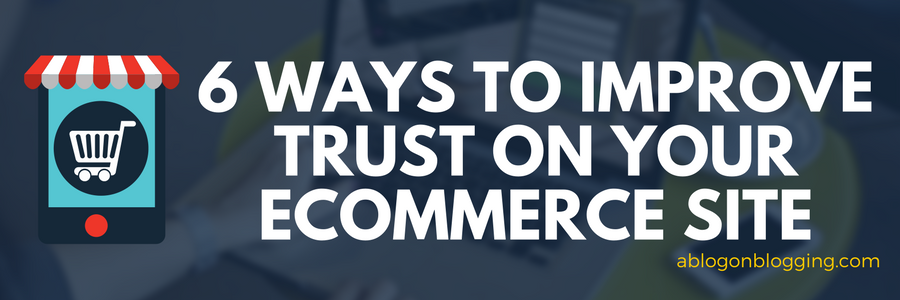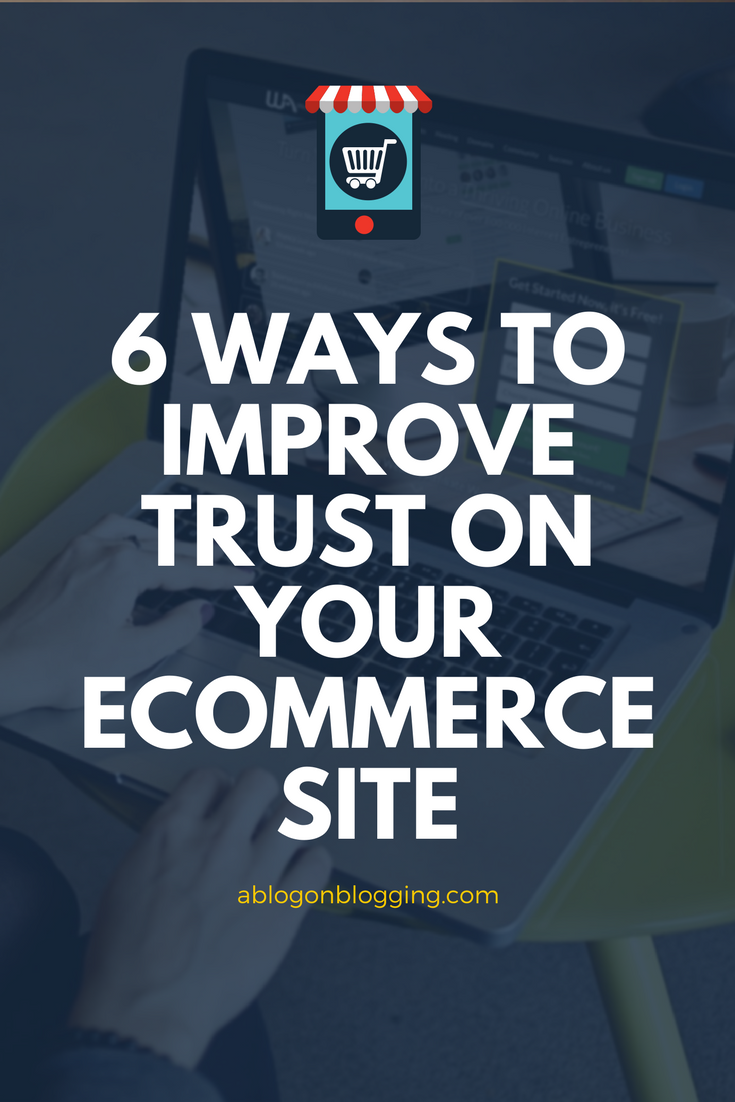Running your own online business?
Chances are you are always on the lookout for ways to improve your site. The performance of your venture can be measured in various ways: revenue stream, new visitor traffic, search rankings, and so on.
Yet all of these parameters are partially governed by one of the most important yet unquantifiable factors – consumer trust in your business.
As something which cannot be assessed through tangible means, it is easy to overlook, but your company reputation may be one of the biggest and most important factors your business needs to consider.
There are some absolutely key areas to be aware of when trying to improve the trustworthiness of your site. Some are technical and others social, but together they can make all the difference between business gains or losses.

Security and Online Sales
As I’m sure you are aware, a particular concern in e-commerce is online security. The crux of online sales is the exchange of sensitive information: asking customers to hand over their card or details, addresses and mobile numbers.
In order to guarantee their compliance, your business needs to appear as credible and secure as possible.
In light of the recent litany of high-profile cyber-attacks and account breaches, consumer trust in online security is at an all-time low.
Gemalto, a global leader in digital security, recently surveyed over 9,000 consumers from across Europe, the Middle East and North America to assess their attitude towards data protection.
The response was overwhelming – the consumers surveyed believe that 70% of the responsibility for securing customer data lies with companies, leaving only 30% of the responsibility with themselves.
The study also found that 21% of those surveyed have experienced fraudulent use of their banking and finance information.
Using Encryption Tools
With the threat of online fraud looming large, it is essential for you to take every measure to demonstrate your website’s legitimacy.
One of the first steps is to ensure it is SSL certificated. Standing for ‘Secure Sockets Layer’, this security protocol was made mandatory by Google in January 2017. This means that a warning will be flagged up to anyone visiting a website without a full HTTPS connection.
The main purpose of SSL is to secure the movement of information on a network using encryption. As transactions across the network occur, checks are run to make sure the encryption has not been tampered with.
Should there be any sign of interference the information is simply not released.
Want to ensure your SSL security connections can’t be undermined and the security levels breached?
The best way to ensure your site is certificated with the most up-to-date technology is to scan and audit your SSL status. Using an online SSL checker, any area in which the connection can be exploited or is vulnerable will be flagged up. With this information, you can then pursue necessary upgrades.
Be Upfront about Your Practices
It goes without saying that you should put your customers’ data security first and make this clear to them from the start. Include a prominent link to your Privacy Policy on your site, so visitors are left in no doubt.
While it is rare that people will scroll through the small print, the presence of a legal document adds to the legitimacy of your site’s operations.
Should you require more detailed or personal information from customers than equivalent sites, explain why this is. Transparency is absolutely key when it comes to gaining customer trust: the worst thing any business can do is lie about its practices.
A further way your business transparency can build trust is through being honest about the services your provide.
For instance, if you offer a promotional deal or package it is your corporate responsibility to follow through on that and not try to evade fulfilling your promise even if it means making a loss.
Learn from your mistake and try to take this into account for future promotions, but never burden your customers with the consequences of your own business mistakes.
Adding a Blog to your Business
Of course, a further way to ensure public trust in your site is to maximize its public profile.
It has been said a thousand times before, but pairing your e-commerce business with a blog is an instant way to improve your online visibility and improve your customer relationships.
As I have spoken about previously, there are certain advantages to having a blog which proves advantageous specifically for e-commerce ventures:
- Improved search engine rankings
- Increased traffic to a business site
- Stronger brand identity
Use your blog to really target your core audience, and get to know them better in the process.
With the narrative format of a blog, you are able to tell a story and display your product in a much more personal way. The blog readers are able to leave comments and in turn, you can leave answers or ask questions.
Through the interaction, you will not only understand your customer base better, but see firsthand the success and failures of different approaches.
Get Listed Online
Whether its Google Maps, Yelp, or an industry-specific business directory, getting listed online has myriad benefits. Listings can improve your SEO by adding credibility to your existing online information by verifying and supplementing it.
The better your SEO, the more visible you will be on Google- increasing your visibility and broadening your audience.
Moreover, submitting your company information to a large directory can have a snowball effect as smaller listing websites take their information from these sources for their own content.
This means that you could very quickly find yourself with a vastly amplified online presence from a single listing.
With increased visibility comes a strengthening in your business reputation. Brand awareness and familiarity are integral in building your customers’ trust in you and your service.
Listings often come with the option to leave reviews: these unsponsored comments can be an enormous help for not only reassuring new customers of the quality of your products, but can set you apart from the competition.
Listen to Your Customers
Every business has its own specific priorities, that is a given. However, I hope that after reading this post you may think a little more deeply about the role of building consumer trust.
Giving your customers a means of easily offering feedback is a great way of gaining insight into how your business is viewed.
Online surveys, polls, and social media can all be used to easily interacting with a wide range of your customers and get their free and honest opinions on topics.
Equally as important as giving your customers a voice is afterwards responding to their comments. If you receive a lot of feedback pinpoint specific flaws in your business model, then act upon them!
If people have praised certain practices then take note and be sure to cater for this. When customers reach out to you on social media, try to reply to each comment individually so it never seems as though you are ignoring their contributions.
Whether your business focuses on fashion retail or commercial building goods, the principles remain the same: assess what your customers really want and find ways of delivering it to them.
Thank you for reading.

